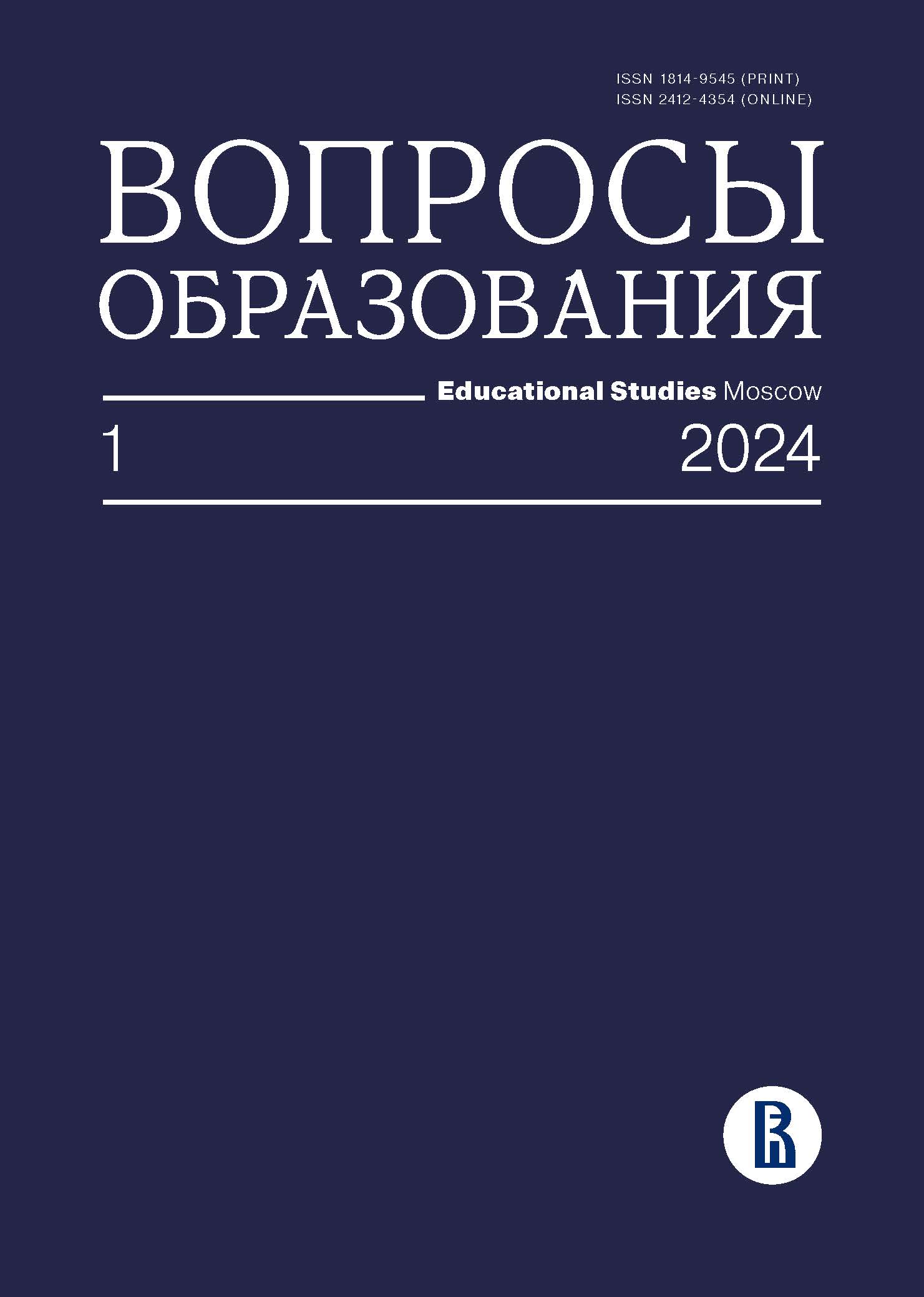Чувство субъектности: понятие, структура, диагностика
Аннотация
Проведено исследование с целью адаптации русскоязычной версии шкалы субъектности (Sense of Agency Scale, SoAS). Выборку составили 224 респондента, рекрутированных с помощью онлайн-сервисов и социальных сетей. Помимо русскоязычной версии SoAS все респонденты заполнили шкалы, оценивающие общую самоэффективность, локус контроля и веру в свободу/детерминизм. Для анализа психометрических свойств русскоязычной версии SoAS использованы методы описательной статистики, корреляционного и конфирматорного факторного анализа, коэффициенты ω МакДональда.
На основании полученных результатов авторы приходят к выводу, что русскоязычная версия SoAS обладает ясной двухфакторной структурой, надежна (ω = 0,81 для шкалы чувства позитивной субъектности и ω = 0,87 для шкалы чувства негативной субъектности) и валидна (за счет теоретически обоснованных корреляционных связей между показателями по SoAS и шкалам общей самоэффективности, локуса контроля и веры в свободу/детерминизм).
Скачивания
Литература
Bajaj M. (2018) Conceptualizing Transformative Agency in Education for Peace, Human Rights, and Social Justice. International Journal of Human Rights Education, vol. 2, iss. 1, Article no 13.
Bandura A. (2018) Toward a Psychology of Human Agency: Pathways and Reflections. Perspectives on Psychological Science, vol. 13, no 2, pp. 130–136. https://doi.org/10.1177/1745691617699280
Breig Z., Downey M. (2021) Agency Breadth and Political Influence. Journal of Economic Behavior & Organization, vol. 188, August, pp. 253–268. https://doi.org/10.1016/j.jebo.2021.05.009
Brevik L.M., Gudmundsdottir G.B., Lund A., Strømme T.A. (2019) Transformative Agency in Teacher Education: Fostering Professional Digital Competence. Teaching and Teacher Education, vol. 86, November, Article no 102875. https://doi.org/10.1016/j.tate.2019.07.005
Byrne B.M., Watkins D. (2003) The Issue of Measurement Invariance Revisited. Journal of Cross-Cultural Psychology, vol. 34, no 2, pp. 155–175. http://dx.doi.org/10.1177/0022022102250225
Calvert L. (2016) Moving from Compliance to Agency: What Teachers Need to Make Professional Learning Work. Oxford, OH: Learning Forward and NCTAF.
Charteris J., Smardon D. (2017) A Typology of Agency in New Generation Learning Environments: Emerging Relational, Ecological and New Material Considerations. Pedagogy, Culture and Society, vol. 26, no 1, pp. 51–68. http://dx.doi.org/10.1080/14681366.2017.1345975
Erss M. (2018) Complete Freedom to Choose within Limits — Teachers' Views of Curricular Au-tonomy, Agency and Control in Estonia, Finland and Germany. The Curriculum Journal, vol. 29, no 2, pp. 238–256. http://dx.doi.org/10.1080/09585176.2018.1445514
Ghahari S., Chen S., Labi S. (2021) A Nonparametric Efficiency Methodology for Comparative Assessment of Infrastructure Agency Performance. Transportation Engineering, vol. 6, December, Article no 100092. https://doi.org/10.1016/j.treng.2021.100092
Gleason M. (2016) Avoiding the Agency Trap: Caveats for Historians of Children, Youth, and Education. History of Education, vol. 45, no 4, pp. 446–459. https://doi.org/10.1080/0046760X.2016.1177121
Green E.M., Gaines A., Hill T.F., Dollahite J.S. (2021) Personal, Proxy, and Collective Food Agency among Early Adolescents. Appetite, vol. 166, November, Article no 105435. https://doi.org/10.1016/j.appet.2021.105435
Gudmundsdottir G.B., Hathaway D.M. (2020) "We Always Make It Work": Teachers' Agency in the Time of Crisis. Journal of Technology and Teacher Education, vol. 28, no 2, pp. 239–250.
Hurault J.-C., Broc G., Crône L., Tedesco A., Brunel L. (2020) Measuring the Sense of Agency: A French Adaptation and Validation of the Sense of Agency Scale (F-SoAS). Frontiers in Psychology, vol. 11, Article no 584145. https://doi.org/10.3389/fpsyg.2020.584145
Jääskelä P., Poikkeus A.-M., Vasalampi K., Valleala U., Rasku-Puttonen H. (2016) Assessing Agency of University Students: Validation of the AUS Scale. Studies in Higher Education, vol. 42, no 11, pp. 1–19. http://dx.doi.org/10.1080/03075079.2015.1130693
Lachman M.E., Firth K.M. (2004) The Adaptive Value of Feeling in Control during Midlife. How Healthy Are We? A National Study of Well-Being at Midlife (eds O.G. Brim, C.D. Ryff, R.C. Kessler), Chicago, IL: University of Chicago, pp. 320–349.
Lennert A.L., Mølstad C.E. (2020) Teacher Autonomy and Teacher Agency: Comparative Study in Brazilian and Norwegian Lower Secondary Education. The Curriculum Journal, vol. 31, no 1, pp. 115–131. http://dx.doi.org/10.1002/curj.3
Li L., Ruppar A. (2021) Conceptualizing Teacher Agency for Inclusive Education: A Systematic and International Review. Teacher Education and Special Education, vol. 44, no 1, pp. 42–59. https://doi.org/10.1177/0888406420926976
Lund A., Furberg A., Guðmundsdóttir G. (2019) Expanding and Embedding Digital Literacies: Transformative Agency in Education. Media and Communication, vol. 7, no 2, pp. 47–58. http://dx.doi.org/10.17645/mac.v7i2.1880
Mäkitalo A. (2016) On the Notion of Agency in Studies of Interaction and Learning. Learning, Culture and Social Interaction, vol. 10, September, pp. 64–67. https://doi.org/10.1016/j.lcsi.2016.07.003
Matusov E., von Duyke K., Kayumova S. (2016) Mapping Concepts of Agency in Educational Contexts. Integrative Psychological and Behavioral Science, vol. 50, no 3, pp. 420–446. https://link.springer.com/article/10.1007/s12124-015-9336-0
Mirowsky J. (1995) Age and the Sense of Control. Social Psychology Quarterly, vol. 58, pp. 31–43.
Mospan A., Leontiev D. (2021) Aprobatsiya i validizatsiya metodiki very v svobodu/determinizm (FAD–Plus) na rossiyskoy vyborke [Approbation and Validation of the Freedom/Determinism Beliefs Inventory (FAD–Plus) in the Russian Sample]. Psychology. Journal of Higher School of Economics, vol. 18, no 1, pp. 109-128 http://dx.doi.org/10.17323/1813-8918-2021-1-109-128
OECD (2019) OECD Future of Education and Skills 2030 Concept Note. Available at: https://www.oecd.org/education/2030-project/ (accessed 2 February 2024).
Rainio A.P., Hilppö J. (2017) The Dialectics of Agency in Educational Ethnography. Ethnography and Education, vol. 12, no 1, pp. 78–94. https://doi.org/10.1080/17457823.2016.1159971
Rajala A., Martin J., Kumpulainen K. (2016) Agency and Learning: Researching Agency in Educational Interactions. Learning, Culture and Social Interaction, vol. 10, September, pp. 1–3. https://doi.org/10.1016/j.lcsi.2016.07.001
Sokol B.W., Hammond S.I., Kuebli J., Sweetman L. (2015) The Development of Agency. Handbook of Child Psychology and Developmental Science (ed. R.M. Lerner, W.F. Overton, P.C.M. Molenaar), Hoboken, NJ: John Wiley & Sons, pp. 284–322. https://doi.org/10.1002/9781118963418.childpsy108
Schwarzer R., Jerusalem M., Romek V. (1996) Russkaya versiya shkaly obshchey samoeffektivnosti R. Schwarzera i M. Jerusalema [The Russian Version of the Scale of General Self-Efficacy by R. Schwarzer and M. Jerusalem]. Inostrannaya psikhologiya, no 7, pp. 71–77.
Tapal A., Oren E., Dar R., Eitam B. (2017) The Sense of Agency Scale: A Measure of Consciously Perceived Control over One’s Mind, Body, and the Immediate Environment. Frontiers in Psychology, vol. 8, September, Article no 1552. https://doi.org/10.3389/fpsyg.2017.01552








